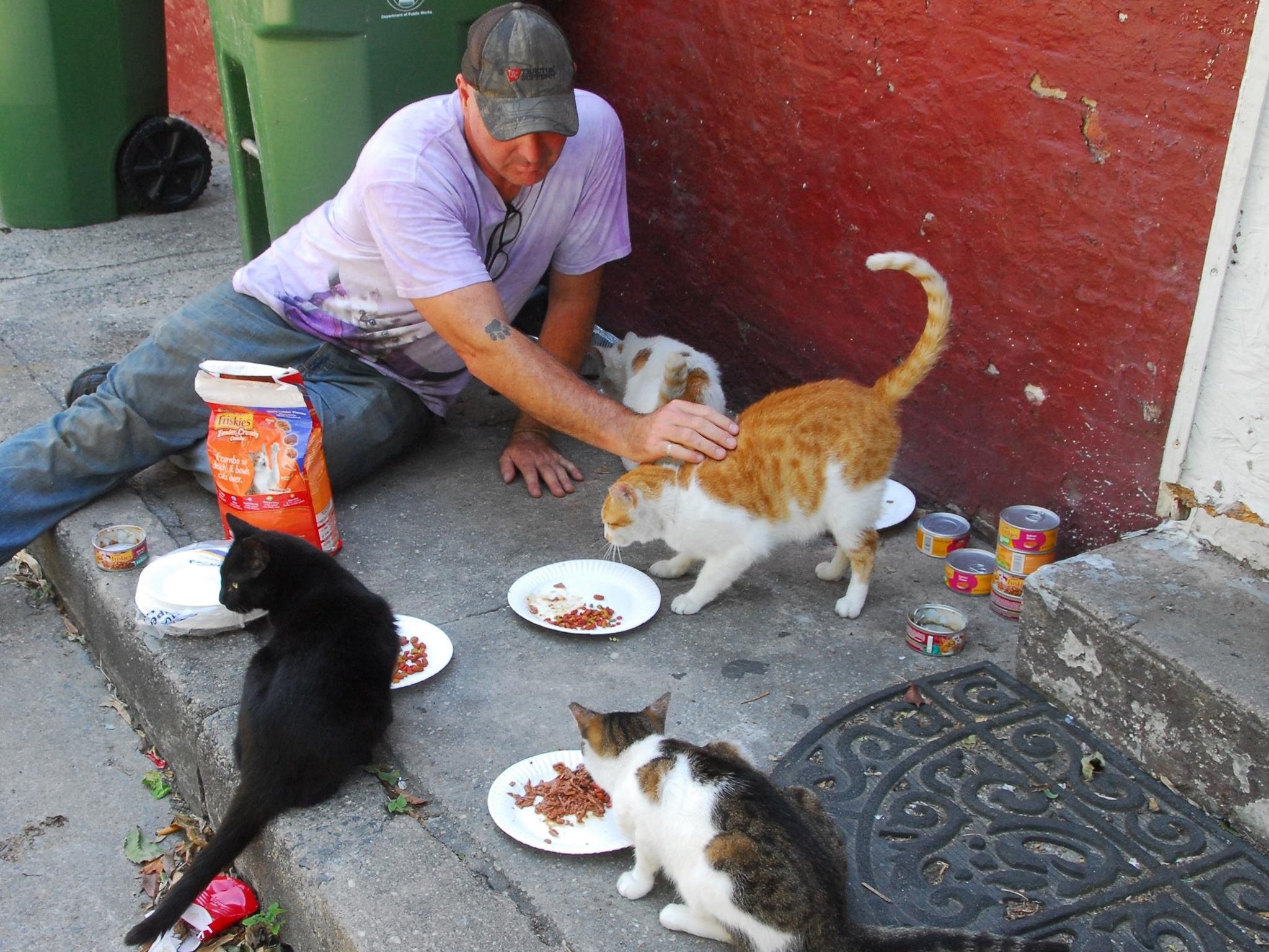Lifesaving Shelter Programs
and Services
Outdoor Community Cats Program
Are you seeing outdoor cats in your neighborhood? We can help. BARCS’ free* Community Cats Program is the humane, effective way to reduce the number of cats living on our streets. Community cats are the unowned stray or feral cats who live outdoors in our neighborhoods.
Free Public Services of the Community Cats Program
Humane trapping of stray and feral cats, followed by spaying or neutering, vaccination and return of the cats to their home area. Over time, their numbers are reduced
Ear-tipping of spayed or neutered cats. A painless procedure, an ear-tip is the universal symbol of a spayed or neutered outdoor cat
Benefits of Spaying/Neutering:
Prevents unwanted litters
Saves taxpayer dollars by keeping cats out of municipal shelters
Decreases the number of cats needlessly dying in shelters
Helps improve the health of outdoor cats
Reduces nuisance behaviors like spraying, fighting, howling and roaming
Tell us about stray cats in your neighborhood! Email communitycats@barcs.org.
Do all stray cats go through the Outdoor Community Cats program?
When stray cats are brought into BARCS, determining if they are a TNR candidate is a part of the evaluation process. Our staff looks into the location in which they were found (are there other community cats in that area with food sources, is the area safe for community cats to be living, etc.) as well as their medical examination (are they healthy enough to be living back outdoors) and their general behavior. Community cats exist on a spectrum of sociability–many can be friendly while others are fractious or avoidant.
Click the button below to view the TNR Flow Chart to learn more about how a cat is determined to be an Outdoor Community Cat.
Support This Program
Monetary Donations
Help us continue saving lives by making a donation today to BARCS. Our Community Cats Program is just one of the many ways BARCS is helping to keep animals in our community healthy. By providing outdoor cats with vaccinations and spay/neuter services, we are lowering the risk of disease and the population of unwanted cats and kittens that wind up in shelters in and around Baltimore.
Distribute Flyers
Getting the word out about TNR is the most effective way to save more lives in our community. You can help us by downloading the flyer to share on your social media accounts and to post around your neighborhood.
Volunteer Opportunities
BARCS' Community Cats Program relies heavily on volunteer support. We have volunteer opportunities ranging from hands-on fieldwork to administrative needs. Every volunteer position is key to the success of this program. If you are interested in any of these volunteer opportunities, please email volunteer@barcs.org with questions or to get started.
Recovery Attendant: Mondays and Wednesdays afternoon after 12 p.m.
Provide care for cats pre-and post-surgery
Provide food and water to cats in the Community Cats Program
Clean cages and cat holding areas
Monitor cats recovering from surgery
Hotline/Data Entry Positions: Flexible hours; may be performed from home once trained.
Answer and return phone calls made by the public to BARCS' Community Cats program
Engage with the public and encourage the benefits of the Community Cats Program
Explain the services the Community Cats Program provides to callers
Offer guidance and solutions to any concerns the public may have
TNR Clinic Assistant: Monday afternoons from 10 a.m.-4 p.m. (or until needed)
Assist with cleaning and wrapping surgical instruments, cleaning traps and carrying traps to and from the holding area to the surgery room
Great experience for anyone who wants to gain experience in sheltering and/or veterinary field
Credit for school programs and/or graduation requirements
Community Cats Daytime Assistant: Flexible schedule throughout the work week (before 6 p.m. needed)
Clean cages and traps
Assist with cat drop-offs/pickups by the public
**Note: The cats in this program are often not domesticated cats; they are community cats and can range from friendly to feral. Here at BARCS, we are committed to proper care for all animals in our program.










